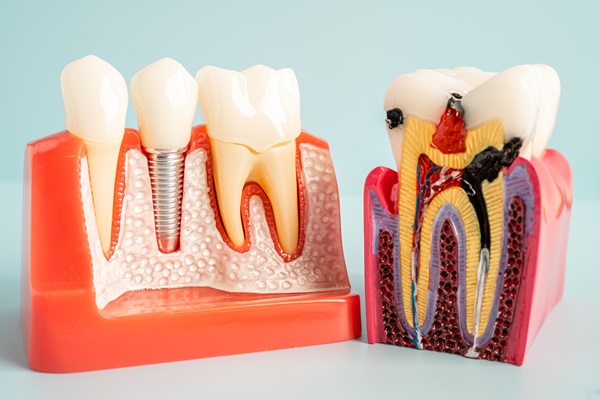Root Canal Aftercare: Tips for a Smooth Recovery

Finding out that you need a root canal can be nerve-racking. Caring for the treated tooth can be even more stressful. Knowing what to do after the treatment can help you prepare well for it. Here are some tips for a smooth and quick recovery after your root canal.
Refrain from eating right after the procedure
The patient must wait to eat as soon as the procedure is over. The anesthesia will still be in effect for hours after the procedure. Eating and drinking will be okay when the numbness fades. The patient should not chew on the treated tooth until the tenderness diminishes.
Apply a cold compress
Place a cold compress on the side of the treated tooth after the root canal. Research shows that cold therapy reduces swelling and pain. Wrap the ice pack in a towel and place it on the cheek for about 10 to 15 minutes. Repeat this treatment many times a day.
Follow instructions when taking medications
The dentist will prescribe antibiotics and pain relievers after the root canal. Follow the strict directions when taking them. These medications will reduce the swelling and pain. They will also prevent the onset of infection.
Take some time off to rest
Healing is important after every surgery. A root canal is an invasive procedure. Take a day or two of complete rest. Doing so will allow the body to pour resources into healing the mouth well.
Gargle with warm salt solution
A warm salt solution can help keep the mouth bacteria- and debris-free. It can also keep the gums healthy as the tooth heals after the root canal. Mix half a teaspoon of salt in a cup of warm water. Remember to be gentle when gargling.
Avoid consuming tobacco and alcoholic drinks
Studies reveal that tobacco and alcoholic drinks impair proper blood oxygenation and circulation. These substances can prevent the root canal-treated tooth from healing right away. They can even increase one’s risk of infection. It is ideal to quit consuming these products if the patient will undergo any oral surgery.
Maintain a soft diet
Eat soft foods for the first three days after the root canal. These foods will prevent the patient from damaging or putting pressure on the treated tooth. It is ideal to stock up on these foods before the procedure. Soups, scrambled eggs, and mashed potatoes are common examples of soft foods.
Wear a nightguard
Some people grind their teeth at night or during stressful times. This habit can harm the root canal-treated tooth. The dentist can provide a custom-fit nightguard. Wearing this dental device at night can protect the said tooth from damage.
Keep the follow-up appointments
It is important to see the dentist at the recommended times after the root canal. The visits will enable the dentist to keep an eye on the tooth’s healing. These checkups also ensure that the tooth receives proper treatment. The dentist will be able to address any problem that may arise during recovery.
Proper root canal aftercare is important to have a painless smile
Every general dentist aims to keep the tooth intact. A root canal is one way to achieve this goal. It may be invasive, but it relieves pain and keeps the tooth intact. Working with your provider can help you recover well and enjoy your smile for years.
Request an appointment here: https://www.dentalcenterhomestead.com or call Monem Dental at (305) 247-8823 for an appointment in our Homestead office.
Check out what others are saying about our dental services on Yelp: Root Canal in Homestead, FL.
Related Posts
Knowing how to handle common dental emergencies can help protect the health, function, and appearance of the smile. Emergency dentists often see patients who need immediate dental treatment for severe issues. These simple tips provide valuable guidance on what to do in common dental emergencies to improve oral health outcomes.An emergency dentist is a general…
Losing a tooth can be disconcerting. Thankfully, there are multiple dental restoration options to replace the missing tooth and restore dental functions. Read on to learn about available options. The choice ultimately boils down to the patient's oral condition and preferences. A dentist will recommend the proper treatment following a dental evaluation.The following are common…
Missing teeth can affect more than just your smile—they can impact oral health, functionality, and overall confidence. Fortunately, several effective restorative options are available to replace missing teeth, each tailored to meet different needs and preferences. Restoring missing teeth not only improves appearance but also supports proper chewing, speech, and alignment of the remaining teeth.…
There are many benefits to removable partial dentures instead of alternative treatment solutions (i.e., implant-supported bridges). Understanding the advantages of partial dentures can help you make the most informed choice possible about the best way to replace your missing teeth. Removable partial dentures are a form of teeth replacement for a section of missing teeth. They…
